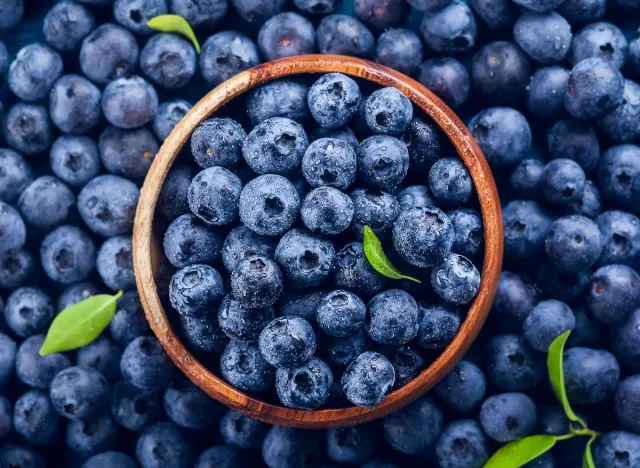You've gotta love your liver. The body's second-largest organ (behind your skin) works hard behind the scenes to keep you alive. You probably know that its primary function is flushing toxins out of the body, but it also processes nutrients from foods, filters the blood and metabolizes the drugs you take, stores glycogen, produces chemicals that help the blood clot, makes bile, and helps regulate blood sugar. Yes, it's a lot.
See, your liver deserves your attention and a regular dose of the healthiest fruits for good liver health. But you're not a heavy drinker, you say? What's to worry about? Perhaps you've heard of NAFLD, nonalcoholic fatty liver disease. It's one of the leading causes of death worldwide and it affects one-quarter of the U.S. population, according to the Mayo Clinic. NAFLD is not related to alcohol consumption, but it's characterized by liver inflammation and can lead to the same damage caused by heavy drinking—scarring of the liver known as cirrhosis.
NAFLD is a fat problem. Deposits of fat form in the liver typically due to being overweight or obese, having high blood sugar, and high triglycerides, a blood fat. Avoiding NAFLD means doing all those things that support a healthier body overall—losing weight, eating less sugar, exercising, and keeping cholesterol levels in check.
One thing you can do today to protect your liver is to eat foods that fight liver inflammation. Arguably the best fruit you can eat for good liver health is blueberries.

"Wild blueberries have the highest concentration of anthocyanins: a natural pigment that gives the berries that gorgeous blue hue," says registered dietitian nutritionist Lauren Manaker, MS, RDN, who is a member of the Eatthis.com medical advisory board and the author of The First Time Mom's Pregnancy Cookbook. "Data shows that anthocyanins may counteract oxidative stress that can occur in the liver and reduce liver-related inflammation."
Anthocyanins are found in the skins of red, purple, and blue fruits; vegetables; and cereal grains. Research shows that their content is proportional to the density of the color. So, blueberries, blackberries, raspberries, cranberries, currants, and strawberries are all good sources of the antioxidant—the deeper and richer the color the better.
Manaker notes that you don't want to consume huge bowls of blueberries. "Eating too much fruit can cause your body to consume excessive amounts of fructose, which can negatively affect the liver," she says. But reasonable servings are fair game.
"Adding wild blueberries to your smoothie, yogurt parfait, or simply eating them on their own can be one of the best foods that you can include in your diet if you want to keep your liver health in check," says Manaker.
No comments:
Post a Comment